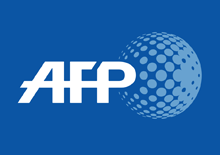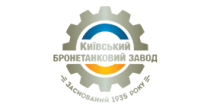World Identity Network and United Nations team up to launch innovative blockchain pilot to help prevent child trafficking
NEW YORK, Nov. 10, 2017 /PRNewswire/ -- The World Identity Network (WIN), the United Nations Office for Project Services (UNOPS) and the United Nations Office of Information and Communications Technology (UN-OICT) are partnering to launch a pilot initiative that will use the blockchain technology to help combat child trafficking. A first in the world, this project is part of a broader effort titled "Blockchain For Humanity", announced during the Humanitarian Blockchain Summit in New York on November 10, 2017.
According to United Nations statistics, nearly half of the world's children under the age of five do not possess a birth certificate. The global estimates for children under the age of 14 exceed 600 million children worldwide and the vast majority of them live in the world's poorest countries. These children are literally "invisible" to governments or development agencies that design and deliver social programs.
Talking about the pilot initiative, Dr. Mariana Dahan, co-founder and CEO of WIN says: "Invisible children are children at risk," pointing to the numerous dangers faced by undocumented children and minors. "Several developing countries are actively looking at more efficient ways to prevent child trafficking. Identification is always at the heart of the solution."
Undocumented children and minors are easy prey for human traffickers, who often use fake identification documents to transport them across borders. Once trafficked, these children and minors are sold to sex brothels, caught in modern slavery rings, and even used for the illegal human organ trade. This affects both girls and boys, but young women and girls are targeted most often. With powerful new technologies and solutions, such as digital identity on the blockchain, there is now a significantly higher chance of catching traffickers and securing data on an immutable ledger, further making any such trafficking attempts more traceable and preventable.
The results of such initiatives could contribute to the work of a number of UN agencies. Yannick Glemarec, UN Assistant Secretary General and UN Women Deputy Executive Director says: "Child trafficking is one of the greatest human rights abuses. Leveraging blockchain technology offers potentially powerful solutions to address this serious challenge and save the lives of millions of children."
Yochiyuki Yamamoto, Special Advisor for UN Engagement and Blockchain Technology, described this initiative as one of the most impactful applications of distributed ledger technologies: "We're particularly excited about this innovative pilot initiative, since child trafficking is one of the worst example of a crime against humanity. Leveraging blockchain technology for the social good is something that the international community is striving for and we're delighted to partner with WIN on this critical initiative."
Since its launch this past summer, at the Blockchain Summit on Sir Richard Branson's on Necker Island, WIN has been approached by multiple agencies and governments, who want to use blockchain-enabled applications for the social good. One of them is Moldova - the poorest country in Europe - which has been trying to stop child trafficking for decades and has now come to realize the possibilities offered by the blockchain technology. Other neighboring countries, with a similarly high prevalence of trafficking in human beings, such as Ukraine, for instance, have also expressed strong interest in piloting such a project.
The partners seek increased collaboration with the private sector companies, civil society, NGOs, academia, and other stakeholders who would like to be involved and contribute to this cause. To that end, the partners are launching a Global Challenge that looks for the best ideas and expertise in using the blockchain technology for humanitarian purposes, such as fighting child trafficking.
The terms of the Challenge also require to properly identify and address concerns over the privacy of the data and the frameworks needed to be in place for digital identity management. The submissions by interested parties can be made online, through the UNITE Ideas platform: http://bit.ly/Blockchain4Humanity
Speaking on the opportunity of this Global Challenge, Salem Avan, UN-OICT Director of Global Services Division, says: "The blockchain community has the opportunity to become an invaluable resource to the United Nations and our partners for innovative, high-impact applications that can accelerate our humanitarian response."
About World Identity Network (WIN)
For more information, please visit www.win.systems
View original content with multimedia:http://www.prnewswire.com/news-releases/world-identity-network-and-united-nations-team-up-to-launch-innovative-blockchain-pilot-to-help-prevent-child-trafficking-300553921.html
SOURCE World Identity Network (WIN)






